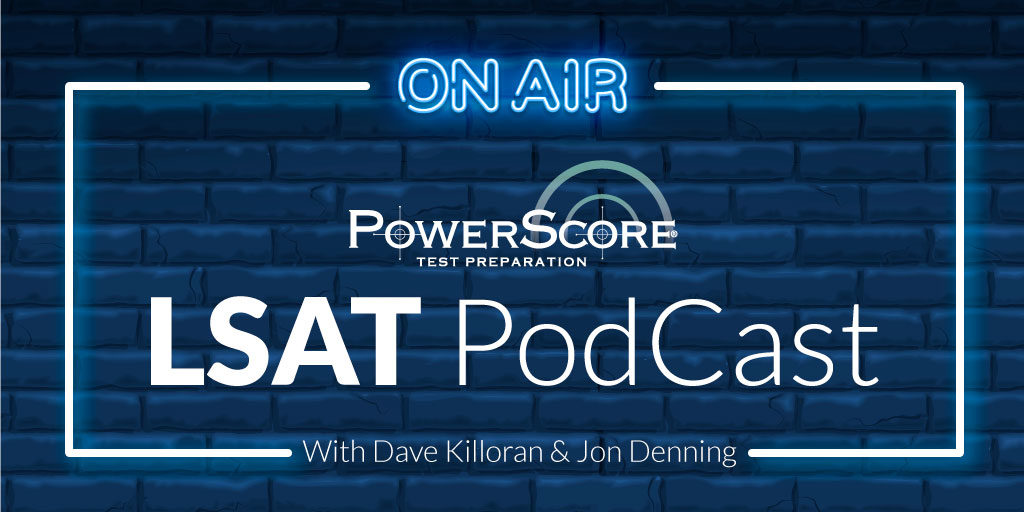It’s been another week of breaking LSAC news! Dave and Jon explore it all in the PodCast’s 62nd episode. Specifically, they provide details on the upcoming reinstatement of test retake limits, and offer a comprehensive analysis of the lost scores from the July LSAT-Flex, outlining precisely what occurred, what caused it, what it means for the integrity of the testing process itself, and what happens next, both for those whose scores were lost and for everyone else looking to take an LSAT in the future and fearful that this could happen again.
0:00 – Intro. “The Ghost In You” by The Psychedelic Furs hints at the discussion to come with phantom LSAT score disappearances occurring on July release day.
Retake Limits
5:21 – This week in the LSAT world part 1. LSAC has just announced that beginning with the October 2020 LSAT they are reinstating the retake limits first established in September 2019, but that have been suspended for all tests from May through August of this year. For those unaware, here are the restrictions being resurrected for multiple attempts:
- You can sit for the LSAT three times in a single testing year (LSAC’s year goes from June 1 to May 31). This applies to cancellations as well as to kept scores. After three attempts you have to wait until the following June before you are permitted to test again.
- You are allowed five attempts within any five year period (the period in which LSAC reports scores to law schools). After your fifth LSAT you must wait until five years have passed since your first test before being allowed to retake.
- You can take the LSAT seven times in total. After that no further attempts are allowed.
- These limits apply regardless of whether future tests are Flex or in-person, but will not be enacted retroactively. The May, June, July, and August 2020 LSATs do NOT count toward these limits, but tests from September 2019 through February 2020, and tests after August 2020 all will. So plan accordingly as you map out your testing timeline—taking the LSAT solely for experience now comes with additional consequences.
Lost LSATs
10:28 – This week in the LSAT world part 2. Unfortunately, a small percentage of July test takers found out on score release day that their scores disappeared due to data not transferring properly. This happened to around 120 test takers out of the 14k that took the July exam. So far about 40 of the scores have been recovered, and we hope that this continues to grow.
18:07 – What is LSAC offering in light of this mistake? Free retests, refunds, free score reports, and more offered to affected students.
30:42 – How did this happen? The two primary theories are either a ProctorU upload failure or an LSAC data failure. Jon and Dave discuss how these scenarios could have taken place.
53:36 – What happens now? Jon and Dave discuss what LSAC should do with their system moving forward to avoid this issue, and how future LSAT-Flex takers should approach the test and their level of trust for accuracy.
1:00:16 – Outro


Al Heller says
Dave and Jon, thank you very much for producing such a high quality podcast. It’s as entertaining listening to the two of you discuss your drink choices as it is enlightening to hear your LSAT/law school discussions.
I have a question about applying. I first applied to law school right after undergrad, about 12 years ago. I just did it for something to do (I have no idea what I wanted to do after undergrad) and didn’t take it seriously. My scores were all low, letters of recommendation lackluster, and personal statement bland and obscure. Now, after careful consideration, I’ve decided to seriously pursue a legal career. My LSAT is solid and my recommendations are glowing and I’m putting a lot of effort into my personal statement. Is it necessary for me to address the fact that I previously applied? Do I need to include an addendum explaining why, or should I just ignore it? Any comments you have would be helpful.
Thank you!
Dave Killoran says
Hey Al,
Thanks for the message! I’m glad our drink choices are entertaining–that’s our favorite part lol 🙂
This is interesting, and I would ignore the fact that you previously applied. All your scores from before are gone and any new schools won’t have a record of you applying. And the re-application ones will realize you are totally different now. So, I don’t think you need to bring attention to it!
Thanks and good luck with the new apps!
Makenzie Johnston says
Hi! I had 7Sage but was not really feeling into it & felt like it was as in-depth as I needed, so I bought RC, LR, and LG Bibles & just signed up for your $195 Subscription after listening to the podcast which really drew me in with the guys! I have a question, I am taking the Nov. LSAT for the first time & I am wanting to apply for Fall 2021. If I take the Nov. test, is there room for a second attempt if I do not perform well in Nov.?
Dave Killoran says
Hi Makenzie,
Thanks for the question! This is an easy answer: yes, there is plenty of time. In fact, I’ll add this question to our podcast mailbag (which is out next episode) and expand on it there 🙂 But almost every school takes tests in the spring of 2021, and many will take exams up through May 2021. The rule is: better to apply later with a higher score than earlier with a lower one.
Thanks!